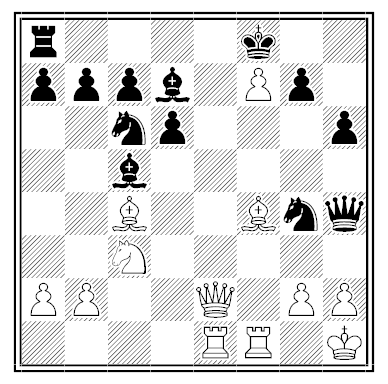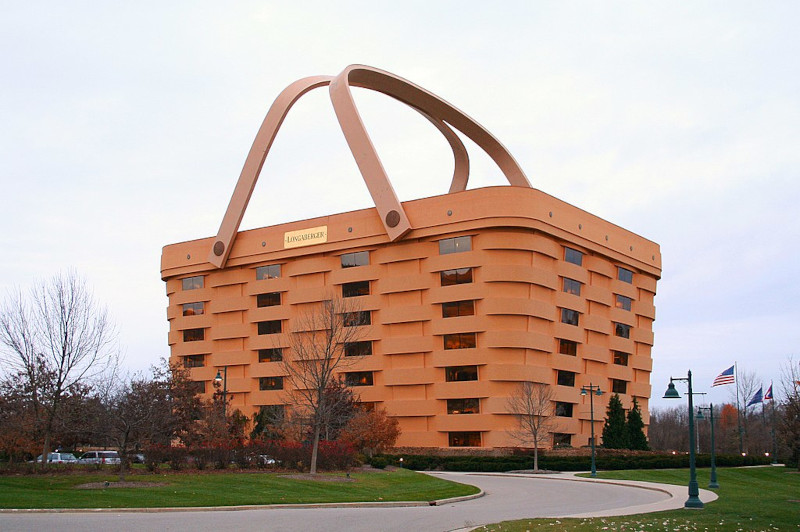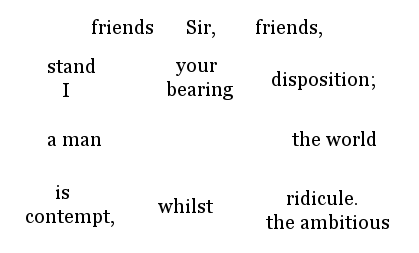“I have so often seen how people come by the name of genius; in the same way, that is, as certain insects come by the name of millipede — not because they have that number of feet, but because most people won’t count up to fourteen.” — Georg Christoph Lichtenberg
Round Trip
A man eats breakfast at his camp, then travels due south. After going 10 miles in a straight line he stops for lunch. Then he sets out again due south. After going 10 miles in a straight line he finds himself back at camp. Where is he?
“The Continental Salamander”
In the year 1826, one Monsieur Chabert … performed the following feats at the White Conduit Gardens: Having partaken of a hearty meal of phosphorus, washed down with a copious draught of oxalic acid in a solution of arsenic, he drank off a jorum of boiling oil, and with his naked hand helped himself to a serving of molten lead by way of dessert. On another occasion he walked into a fiery furnace, stayed in some considerable space of time, and came out whole and unburned. He represented the furnace as hotter than it really was, though, as a matter of fact, he took in with him a raw beefsteak and brought it out broiled to a turn.
— Albert Plympton Southwick, Handy Helps, No. 1, 1886
“The Keats of Chess”
Rudolf Charousek had been playing chess for only four years when he found himself facing this position against Jakob Wollner at Kaschau in 1893:

He found one of the most immortally pretty finishes in chess history — to discover it, read Kester Svendsen’s 1947 short story “Last Round,” which the game inspired.
Three years afterward, Charousek defeated Lasker at Nuremberg. “I shall have to play a championship match with this man someday,” the master remarked, but it was not to be — the Hungarian died of tuberculosis in 1900, at only 26.
Twice-Tolled Tails
Mottoes on English bells, collected by John Potter Briscoe in Curiosities of the Belfry, 1883:
- Fear God and obeai the Qwene. (Artlingworth, Northamptonshire, 1589)
- Arise and go about your business. (St. Ives, Cornwall)
- I ring at six to let men know/When too and from thair worke to goe. (Coventry, West Midlands, 1675)
- A trusty friend is harde to finde. (Passenham, Northamptonshire, 1585)
- Bee not wise in your owne conceits. (Yardley Hastings, Northamptonshire, 1723)
- Labour overcometh all things. (Glentham, Lincolnshire, 1687)
- Rejoice with them that do rejoice and weep with them that weep. (Orlingbury, Northamptonshire, 1843)
- When you die/Aloud I cry. (Owmby, Lincolnshire, 1687)
- I call the quick to church and dead to grave. (Calstock, Cornwall, 1773)
- When you hear this mournful sound/Prepare yourselves for underground. (Hough-on-the-Hill, Lincolnshire, 1683)
And “Mankind, like us, too oft are found/Possessed of nought but empty sound!” (Bakewell, Derbyshire, 1798)
Newcomb’s Paradox
Flamdor McSqueem is a superintelligent wombat from the planet Zortag. He shows you two boxes. You can choose to take the contents of Box A or the contents of both boxes. He has privately predicted what you will do.
If Flamdor predicted you would choose Box A only, then Box A contains $1 million. If he predicted you’d choose both boxes, then Box A contains nothing. Either way, Box B contains $1,000. What should you do?
Some people reason that Flamdor is very intelligent and his predictions are usually accurate, so it would seem best to choose Box A. Others note that Flamdor has already made his prediction and can’t change the contents of the boxes now, so it seems best to take both boxes.
There’s no correct answer — decision theorists are still arguing about it. What would you do?
Yogi Bear’s Dream

The Longaberger Company of Newark, Ohio, makes, um, baskets.
Founder Dave Longaberger wanted all the company’s buildings to be basket-shaped, but his daughters vetoed this after his death. Spoilsports.
In a Word
murcous
adj. lacking a thumb
Late Arrival
In 1933, a lifeboat was found drifting in Barkley Sound on Vancouver Island.
It was marked Valencia — the name of a passenger liner that had run aground there 27 years earlier.
It was still in good condition.
“A Curious Letter”

“Sir, between friends, I understand your overbearing disposition; a man even with the world is above contempt, whilst the ambitious are beneath ridicule.”
From Dick & Fitzgerald, The Book of 500 Curious Puzzles, 1859.
